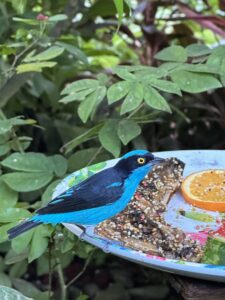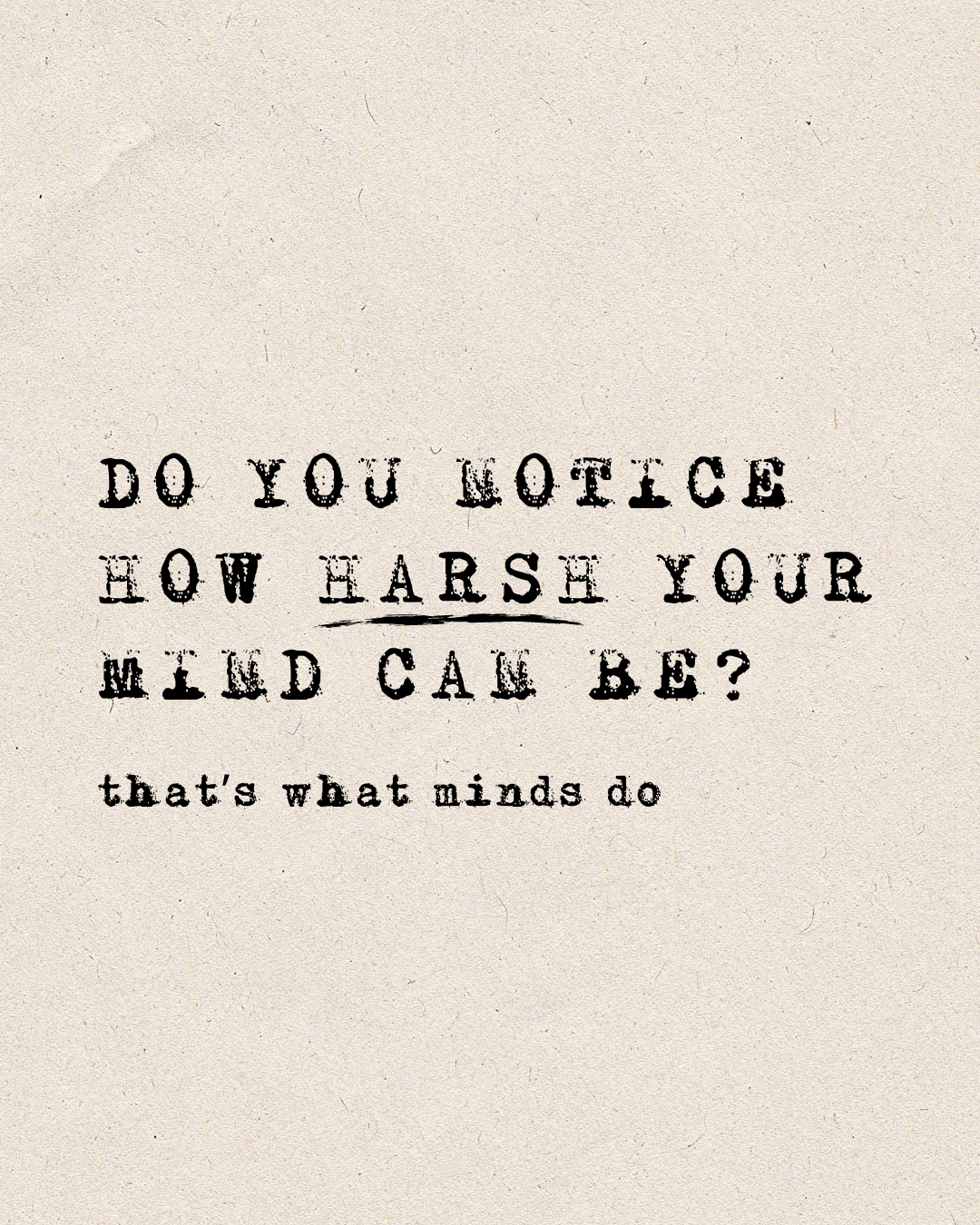We’ve all been there — a friend or loved one is going through a tough time and our instinct is to do anything we can to help. But this can be easier said than done.
It can be tempting to take the reins and try to “fix” the situation instead of listening, but this advice-giving approach can often rob the speaker of their own power and agency in processing their pain.
Fortunately, nature has some useful lessons that can inform how we can be more effective listeners in situations like these. Let’s explore further…

The Collective Wisdom of Birds
Studies have found that many birds fly together in flocks, with each beat of their wings collectively determining which way they will turn.
Although there seems to be a hierarchy in the flocks, the hierarchy can shift and change. Even the birds in the back have a say in which way they will go.
This collective wisdom offers us insight into how we can best show up for our friends during difficult times; rather than attempting to take full control over their course, our role instead is about riding along with them, being present and subtly supporting them without dictating where they should go or how they should feel.
In other words, when supporting someone through hardship it is important to remember that our role isn’t necessarily to “fix” things or provide definitive solutions – instead, it is about acting as an ally and providing silent strength so the person struggling can fly at the head of the flock and navigate their own journey.

‘Crucially, these hierarchies are flexible in the sense that the leading role of any given bird can vary over time, while nonetheless remaining predictable in the long run,’ Dr. Biro said. ‘This dynamic, flexible segregation of individuals into leaders and followers — where even the lower-ranking members’ opinions can make a contribution — may represent a particularly efficient form of decision-making.’
Nagy et al. Hierarchical group dynamics in pigeon flocks. Nature, 2010.
Take a look at the quote above. When we consider the importance of flexibility and predictable-unpredictability in supporting someone in crisis, we open ourselves up to being a more effective conversation partner. We tune into and focus fully on what the person is saying with their words and their body language. Where are they flying to? What is their goal?
We can simply ask: do you want to vent right now and for me to pay attention and listen or are you looking for strategy and advice?
More often than not, when someone is experiencing pain, they are looking for someone to fly beside them while they lead the flock, someone to hear their story and remain with them in the moment. The predictable-unpredictability comes into play here. Although a speaker might not exactly predict what your response will be to their sharing, there is safety created when you make room for the speaker’s experience without judgment and do not pressure them to feel a certain way. Over time, a speaker will know you are someone who can truly receive them and trust more in the relationship.
Understanding when not to speak is just as important as knowing what to say.
Like the birds who vote beat by beat with every wing stroke, you can make a conscious effort to tune into nonverbal cues and put into your own words what the speaker is saying so they know you are processing it and are actually hearing them.
By taking a step back and allowing the speaker space for self-reflection and expression without interruption, judgment, or expectation, we are helping them gain clarity on their own path forward while signaling to them that you are there for them at the moment.
Think back to a time when you were really upset or frustrated and someone was present with you and didn’t say a word.
They just gave you the room to be heard and understood.
How did it feel?
It is rare for my coaching clients to have experienced a conversation with someone who has effective listening skills or someone who can stay focused and pay attention to them during a conversation.
I have lost count of how many times I have heard, ‘You are the first person in my life to actually hear what I am saying’.
Improving my own listening skills was the reason I sought out coach training initially.
All of the people I admired in my life had Jedi Master Level listening skills.
Listening was something I didn’t want to be just “OK” at doing. I wanted to be a great listener because I was in a period of my life where I was soul-seeking hard. I was searching for the wisdom of the universe and the people I admired were often the quietest in the room.
They conserved their speech and weren’t looking for the right thing to say. They took the time to digest and respond to what was actually said, they asked questions and they received more than they gave. That made the giving all the more helpful.
The great listeners seemed to do the least harm. They had healthier relationships at work and if I had the privilege to know them personally, I could see this also was true at home. In conversations, they made eye contact, paid attention to body language, were conscious of their facial expressions, and for the most part, left their ego at the door.
The great listeners were not reactive, rather, they were actively engaged in the present moment with the speaker creating space for them to be heard.
Better listeners make better choices.
You can practice active listening and begin cultivating effective communication as a skill in any environment involving another person.
You can begin by simply removing distractions, turning toward the speaker, and being present with them when they are speaking to you.
Pet peeve alert – Ah-hem! Put. Down. Your. Phone.

Research shows 1 in 5 smartphone users spends 4.5 hours on average on their phones every day and 47% of people believe they are addicted to their phones.
Exploding Topics (2023). Time Spent Using Smartphones (2023 Statistics). https://explodingtopics.com/blog/smartphone-usage-stats
How many times have you been talking to someone when they are texting, scrolling or “doing something really quick” on their phone?
Sending someone body language like the top of your head looking down at a phone is going to send a message that whatever you are doing on your phone is more important than what they have to say.
Effective listening involves paying attention and engaging the other person, whether it is verbally or non-verbally.
Bearing witness to a person’s story and even a simple gesture of turning toward someone as they are speaking can contribute to them feeling heard, and understood and help with healing and recovery processes.
It sends the message you are trying to fully understand who they are.

If you would like to brush up on your listening skills, I created a free download, A SoulSeeker’s Guide: The Lost Art of Listening, here.
Listening isn’t always easy. Especially in our intimate and close relationships.
You might feel reactive or triggered by what the other person is saying. You can stumble, cut them off, or interrupt them at an inopportune time. You might even storm out.
If you notice you are very reactive or you are feeling very emotional in the conversation to the point you can no longer effectively hear the speaker, remove yourself from the conversation by allowing yourself the ability to create a healthy boundary.
You can let the speaker know you need some time and you will return to the conversation so they don’t feel abandoned.
If the conversation becomes abusive or unsafe, remove yourself from the situation and contact a professional or support person for assistance so you are not returning to an abusive or potentially dangerous situation.
I find it helpful to think about the “active” in active listening.
You are often silent as the active listener, but you are taking action because you are consciously engaging with the speaker by being present with them, acknowledging their pain or struggle, and putting out cues that you are a safe person with whom to talk about something difficult. This process takes energy and constant effort.
Even though you might not feel like you are adding value to the conversation, you can trust that you are.
Your authentic and non-judgmental connection with the speaker as they share can be the thing that sets you apart from everyone else in their life.

Listening is a skill we can learn. I believe active listening is one of the most important skills for relationship building, conflict resolution, and improving societal functioning.
Finding ways to support those around us during tough times is no easy task — but by taking cues from nature, we can find solace in knowing that it doesn’t have to be overly complicated either.
Rather than trying to fix things or provide definitive solutions that may not have been asked for, let us remember that our role is simply about flying alongside those who are suffering – providing an understanding ear and silent strength so that they may lead the flock on their journey towards healing.
With this in mind, let us remember that while it is important to stand in solidarity with our friends during difficult times, ultimately, we must place trust in their power and wisdom as they navigate their journey forward. If, during the conversation, we find we are leading the flock, we can drop back and they can resume taking the lead.
By showing up as allies and providing silent strength, we can offer gentle guidance without trying to fix or take control.
————-
References: Biro, D., Poston, J., Bokony, V., Heglund, N., & Huszár-Kozma, E. (2010). Hierarchical group dynamics in pigeon flocks. Nature, 464(7290), 890–893. https://doi.org/10.1038/nature08891
References: Zippia. “20 Vital Smartphone Usage Statistics [2023]: Facts, Data, and Trends On Mobile Use In The U.S.” Zippia.com. Oct. 20, 2022, https://www.zippia.com/advice/smartphone-usage-statistics/
References: Exploding Topics (2023). Time Spent Using Smartphones (2023 Statistics) https://explodingtopics.com/blog/smartphone-usage-stats
References: NAGY ET AL. HIERARCHICAL GROUP DYNAMICS IN PIGEON FLOCKS. NATURE, 2010; 464 (7290): 890 DOI: 10.1038/NATURE08891
IF YOU OR SOMEONE YOU KNOW IS STRUGGLING WITH REALLY DIFFICULT TIMES THAT FEEL OUT OF YOUR LEAGUE, THE NATIONAL SUICIDE PREVENTION LIFELINE PROVIDES 24/7 SUPPORT SERVICES. YOU CAN REACH THEM AT 1-800-273-8255.





+ show Comments
- Hide Comments
add a comment